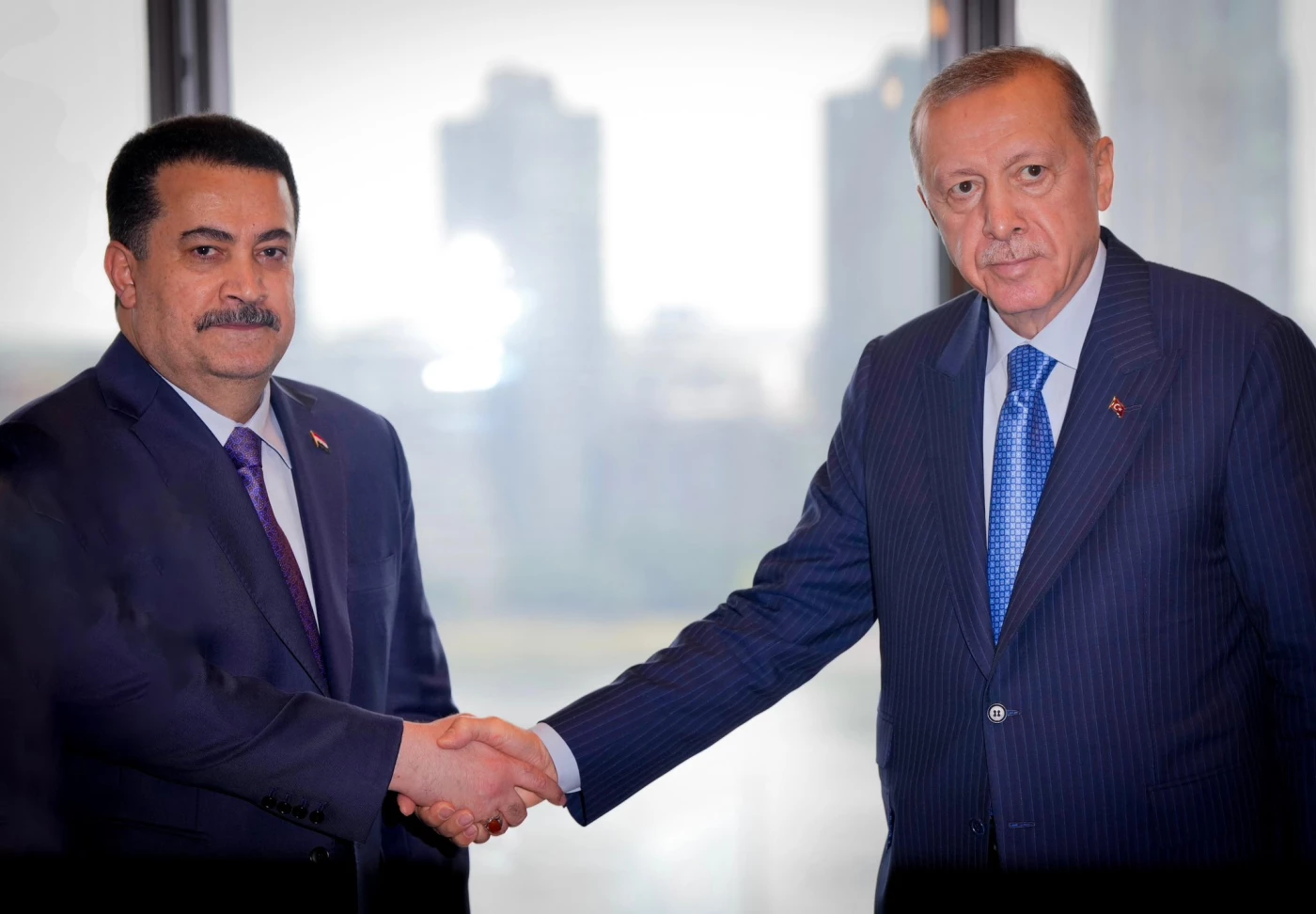DUBAI, UAE - Iraqi Prime Minister Mohammed Shia' al-Sudani met with Turkish President Recep Tayyip Erdogan on Wednesday evening on the sidelines of the 79th UN General Assembly, discussing Baghdad-Ankara ties and regional security.
According to a statement from the prime minister’s office, Sudani reiterated that Iraq will not allow its territory to be used as a base for attacks or threats against neighboring countries, stressing Baghdad’s approach to addressing outstanding border concerns "using the same mechanism that secured Iraq's borders with Iran.”
Iraq and Iran signed a security agreement in 2023 to address Tehran’s concerns over exiled Iranian-Kurdish armed groups which have sought refuge in Iraqi and Kurdistan Region territories for decades. In September 2023, Iraq announced it has completed the disarmament of the group and moved their members away from the borders.
Tehran has on several occasions claimed that the provisions of the agreement have yet to be fully completed, but stressed that both Erbil and Baghdad remain committed to implementing the pact.
Turkey has voiced similar concerns over Kurdish armed groups for years and has launched several operations against the groups aimed at securing its borders with the Kurdistan Region.
The two leaders also reviewed progress on implementing the memoranda of understanding signed during Erdogan's visit to Baghdad in April, with Sudani emphasizing the importance of joint efforts, including coordination on Iraq’s Development Road project.
Iraq’s Development Road is a massive multi-billion dollar railways, roads, ports, and cities project which aims to shorten travel time between Asia and Europe and links the Grand Faw Port in southern Iraq to the Turkish border. The project is set to create hundreds of thousands of jobs and enhance Iraq’s geopolitical status.
Erdogan expressed Ankara’s support for enhancing economic ties with Baghdad, cooperation on anti-terrorism efforts, and contributing to the Development Road initiative.
They also addressed regional developments, including Israel’s ongoing offensive in Gaza and the recent aggression in Lebanon, which both regarded as threats to stability in the Middle East.
Sudani urged a unified stance from Muslim countries in the face of the Israeli aggression on Gaza and Lebanon, stressing the need to prevent the violence from escalating further.
Erdogan “welcomed Iraq's efforts to support stability in the region and stressed the importance of working with all Islamic countries to rally positions to stop the war and aggression against Palestine and Lebanon and prevent the escalation of new conflicts in the region,” the statement added.
Israel and Lebanon’s Hezbollah have been engaged in daily cross-border exchange of fire over the past two weeks. Israel launched a widespread aerial offensive on southern Lebanon on Monday, killing over 550 people and wounding nearly 2,000 others.
“Monday was the bloodiest day in Lebanon in a generation,” UN Secretary-General Antonio Guterres told the Security Council on Wednesday.
On Wednesday Hezbollah launched a ballistic missile toward Tel Aviv, targeting Mossad headquarters, but the projectile was intercepted by Israel’s David’s Sling defense system. It was the first time a Hezbollah missile has reached the Israeli capital since the group launched its attacks on the country last year.



 Facebook
Facebook
 LinkedIn
LinkedIn
 Telegram
Telegram
 X
X


